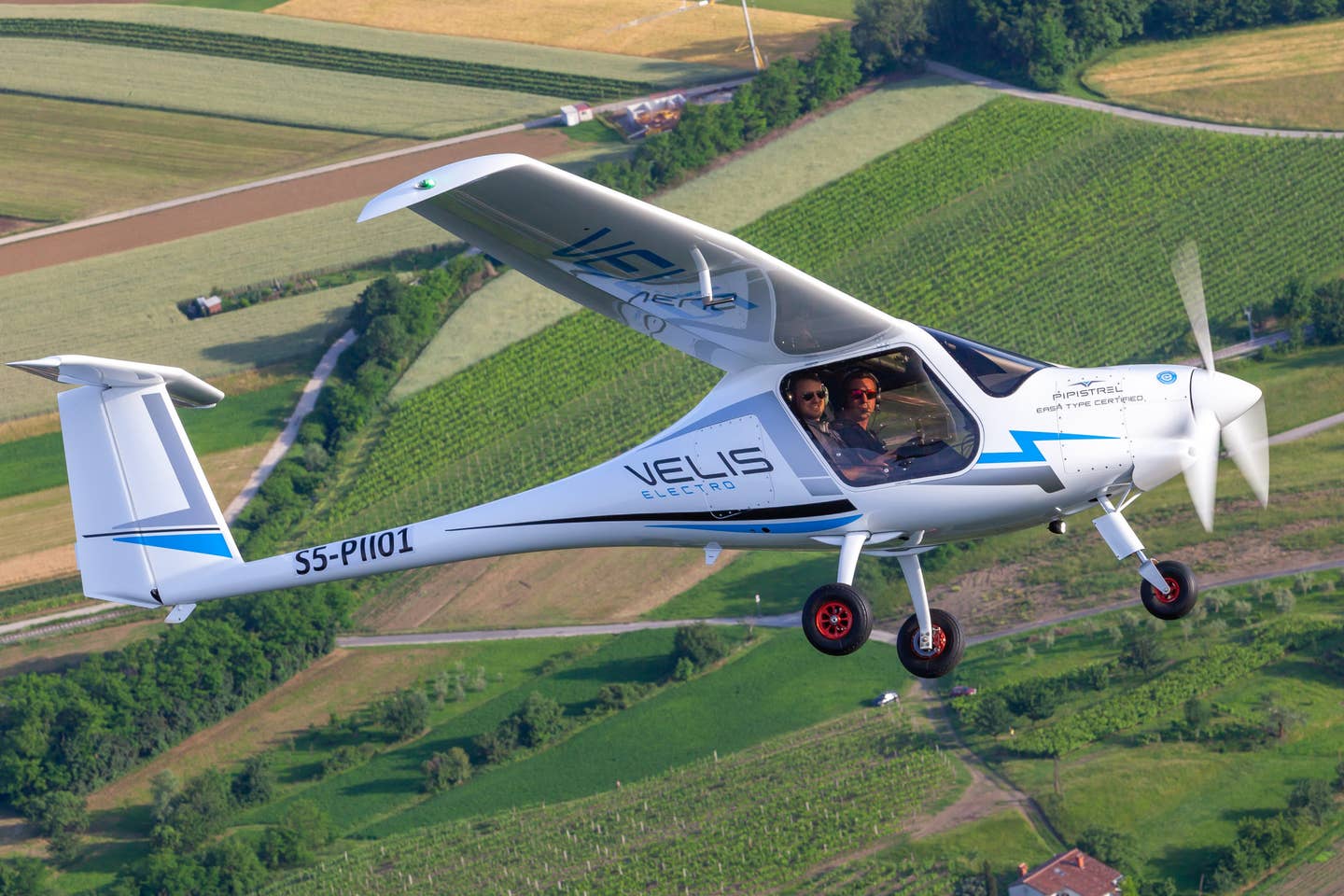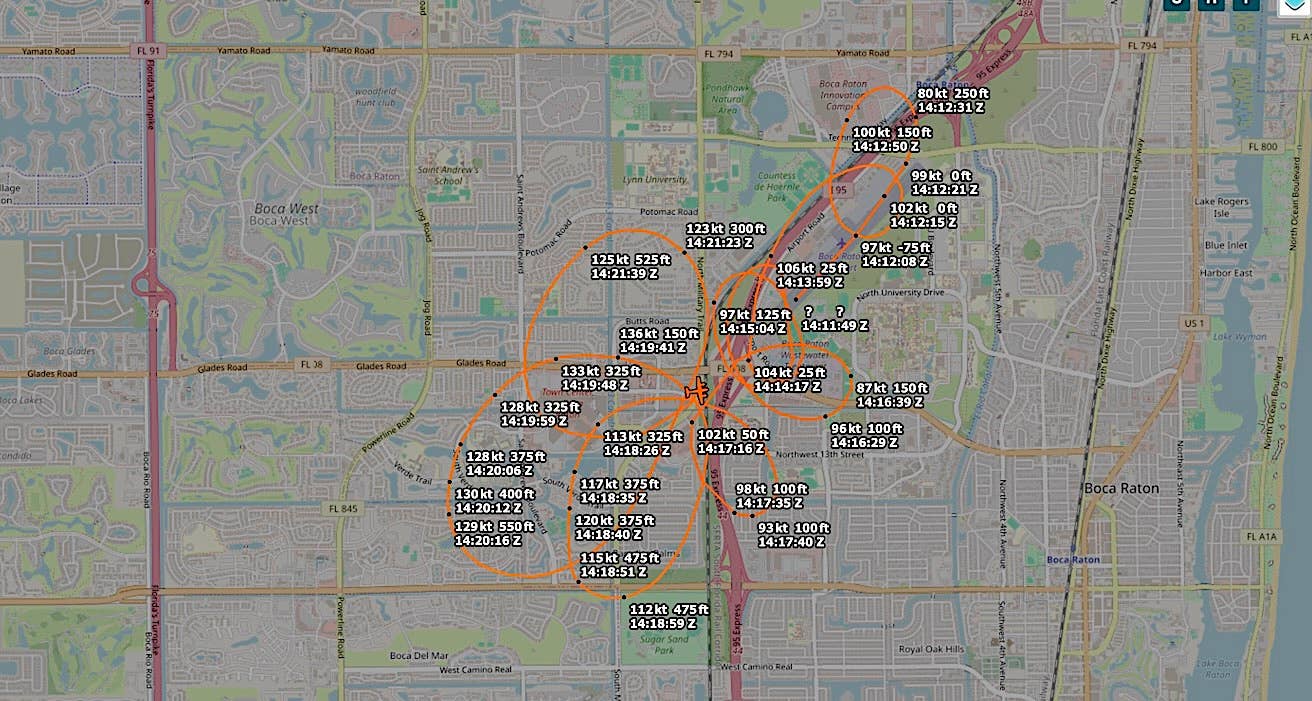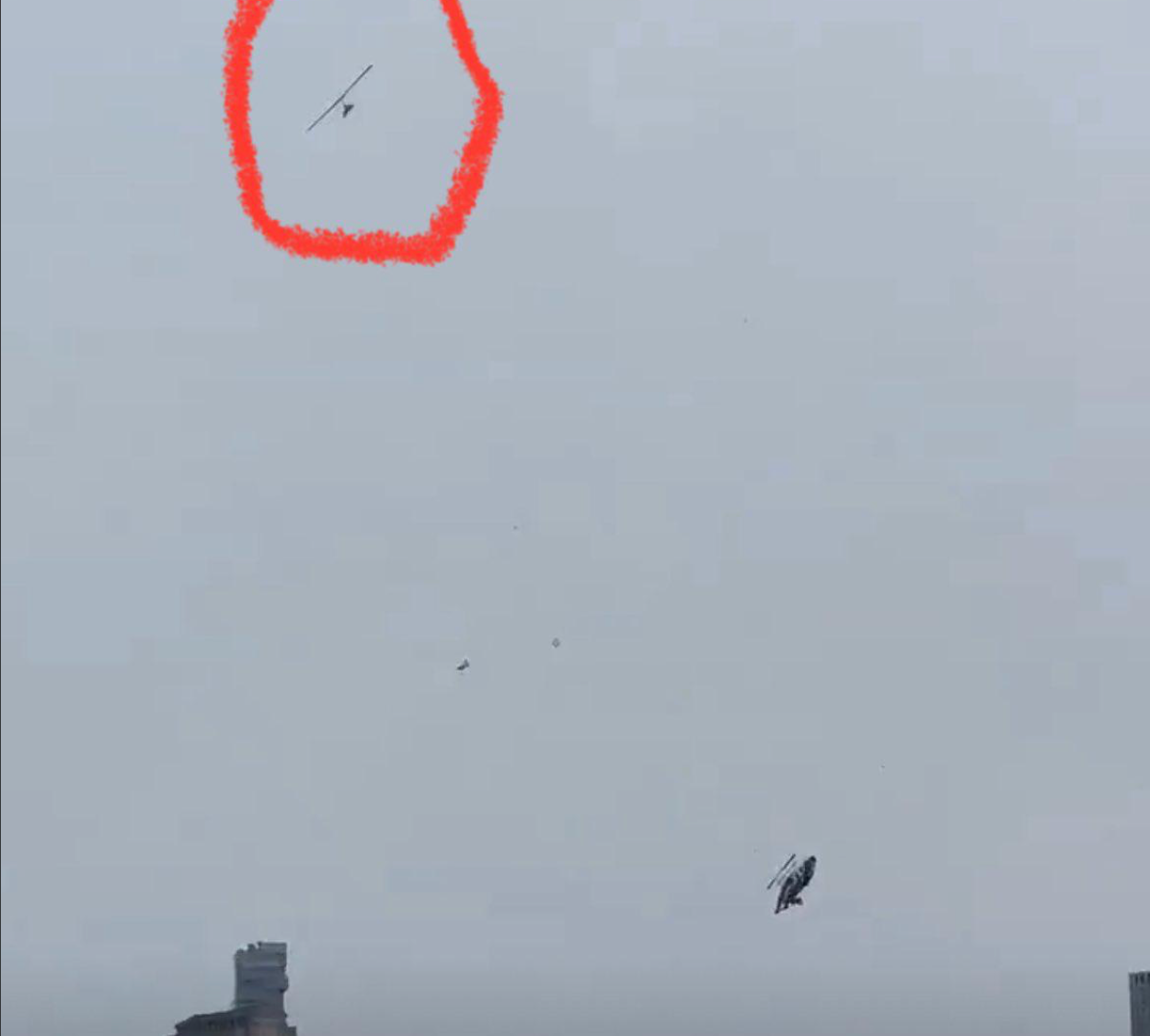Pipistrel Velis Electro Completes Record Flights
The recently certified Pipistrel Velis Electro has completed flights intended to set records for electric aircraft. Between the end of August and Sept. 2, Pipistrel says that “five world records…

Image: Pipistrel
The recently certified Pipistrel Velis Electro has completed flights intended to set records for electric aircraft. Between the end of August and Sept. 2, Pipistrel says that “five world records tumbled the combustion aircraft: your aircraft used less than a quarter of the energy for the route than conventional planes.” Due to the lack of infrastructure, the flights required two ground crews in electric cars that “had to drive two chargers in a rabbit and hedgehog game in front of the plane,” the company said. “The aircraft flies at about 120-150 KM/H in a straight line, the cars have to adapt to the road conditions. Meticulous planning was necessary to minimize waiting times when loading.”
The total distance flown for the record flights, the data for which has been submitted to the FAI for validation, was 523 MI or 839 KM.
According to Pipistrel, the following records have been set.
Lowest energy consumption (kWh / 100 KM): Using a claimed 190.963 kWh of electrical energy, the Velis averaged “22.76 kWh / 100 KM, which corresponds to 2.33 [liters of] diesel (energy equivalent diesel: 9.75 kWh / l)…calculated over the entire distance, the Pipistrel Velis consumed the energy equivalent of 19.58 liters of diesel!” Pipistrel says this performance “puts the aircraft in the range of a Tesla Model S, making it a new benchmark in aviation. Comparable aircraft with internal combustion engines would consume about 4x to 5x more energy.”
Highest average speed over 700 KM (KM/H): The Velis averaged 125 KM/H (77 MPH) over 738 KM (459 MI). The team also believes it set a speed record over 100 KM distance of 136 KM/H (85 MPH).
The Velis also supposedly set records for the “longest electrically flown route,” 327 KM (203 MI) over 24 hours, 608 KM (377 MI) over 48 hours, and 839 KM (523 MI) over 56 hours. The team was planning to conquer climb-rate and absolute altitude records for electric aircraft but the weather did not cooperate.
“Electric flying is still limited in range today and so a lot of logistical effort had to be accepted for this long-haul flight,” the team said in a statement. “However, the aircraft was not originally intended for such a use: The Velis is a training aircraft for training pilots close to the airport, and it is ideally suited for this: practically inaudible, locally emission-free and cost-reduced.”






